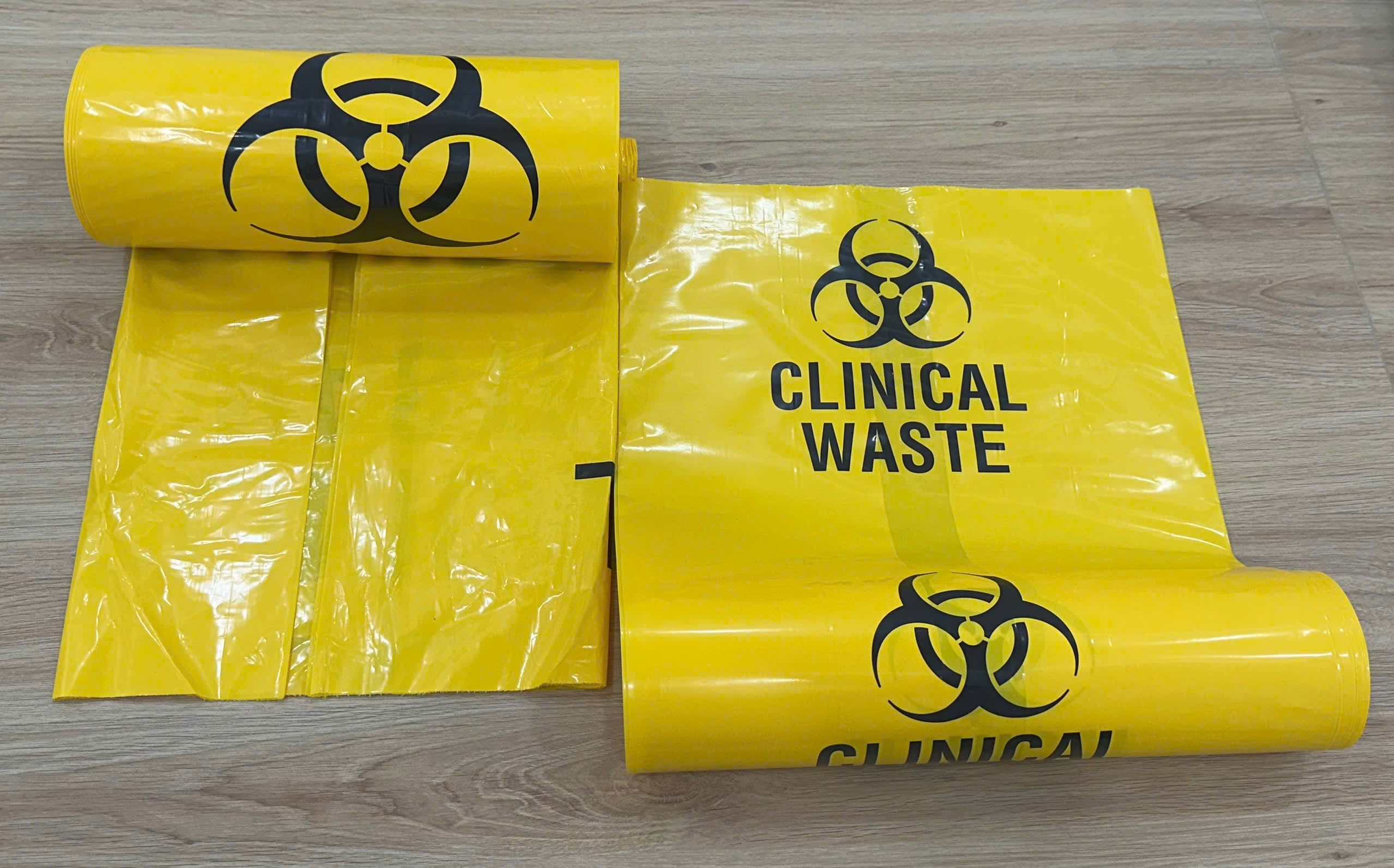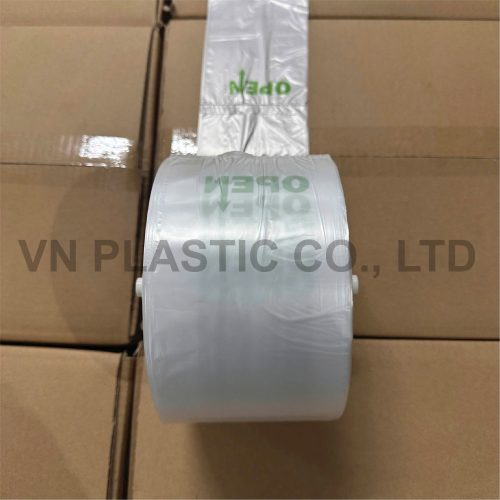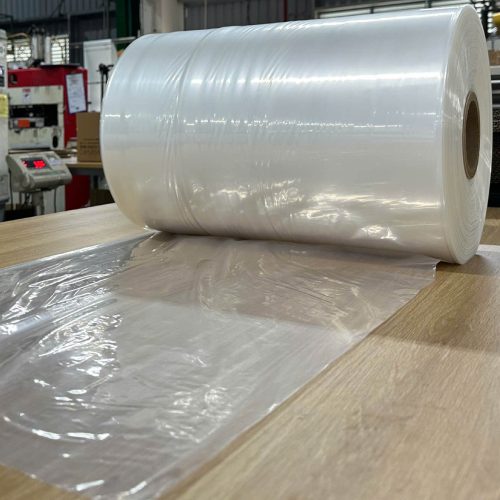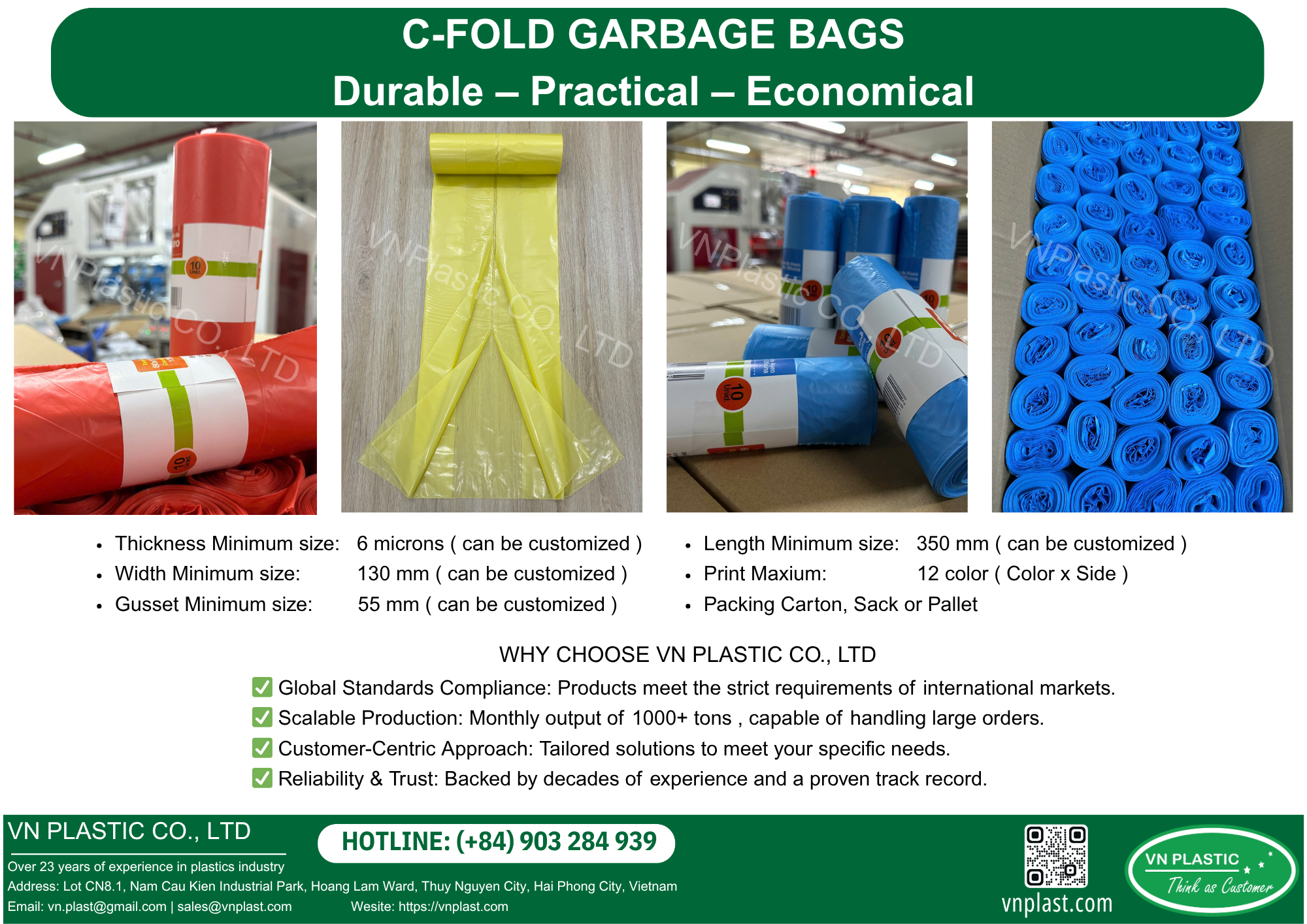In today’s world, where environmental conservation has taken center stage, the demand for sustainable solutions is at an all-time high. One such solution gaining popularity among eco-conscious consumers and businesses alike is recyclable trash bags. These bags serve a dual purpose: they not only help in waste disposal but also contribute positively to our planet by reducing plastic waste. This article delves deep into the world of recyclable trash bags, discussing their benefits, different types available, and how to effectively use them.
Understanding the Importance of Recyclable Trash Bags
Recyclable trash bags are designed to be environmentally friendly alternatives to traditional plastic bags. They not only assist in proper waste disposal but also ensure that you contribute to recycling efforts. Let’s explore their significance further.
The Environmental Impact of Traditional Plastic Bags
Traditional plastic bags have been recognized as one of the primary contributors to environmental degradation.
These bags take hundreds of years to decompose, resulting in massive amounts of waste accumulating in landfills and oceans.
Consequently, wildlife suffers the consequences as animals often ingest plastic or become entangled. Utilizing recyclable trash bags helps mitigate these issues significantly.
Benefits of Switching to Recyclable Trash Bags
By opting for recyclable trash bags, you are making a conscious decision to reduce your carbon footprint.
The benefits include:
- Reduced Landfill Waste: When you use recyclable trash bags, you divert waste from landfills, contributing to a more sustainable environment.
- Support for Recycling Programs: Many recyclable trash bags are made from recycled materials, which supports the recycling industry and promotes a circular economy.
- Versatility: These bags come in various sizes and thicknesses, making them suitable for different types of waste, including yard waste, kitchen scraps, and general household garbage.
Differentiating Between Recyclable and Biodegradable Trash Bags
It’s essential to understand the difference between recyclable and biodegradable trash bags.
While both serve an important role in waste management, they function distinctly:
- Recyclable Trash Bags: These can be processed and turned into new products through recycling. They are typically made from recyclable materials like polyethylene.
- Biodegradable Trash Bags: These bags break down naturally over time due to microbial action. Though they degrade faster than traditional plastic, if not disposed of correctly, they may still end up in landfills without decomposing efficiently.
Understanding these differences empowers consumers to make informed choices about which product best suits their needs.
How to Use Recyclable Trash Bags Effectively
Utilizing recyclable trash bags efficiently can greatly enhance your waste management practices.
Here are some strategies to consider:
Selecting the Right Size and Thickness
Choosing the appropriate size and thickness of your trash bag is crucial for various applications.
To determine the best size:
- Assess Your Needs: Consider the type and volume of waste generated in your household or business. For instance, a larger family might require bigger bags for regular trash, while smaller bags may suffice for recycling purposes.
- Check Thickness Ratings: Different tasks call for varying levels of strength. A thinner bag may handle light recyclables like paper and cardboard, whereas thicker bags are better suited for heavier items.
Proper Sorting Techniques
Effective waste sorting makes a significant difference in recycling success rates.
Ensure you follow these guidelines:
- Educate Yourself on Local Guidelines: Familiarize yourself with your local recycling policies. Some areas have specific rules regarding what can and cannot be recycled.
- Separate Your Waste: Keep separate bins for compostable, recyclable, and landfill waste. Place recyclable trash bags in the appropriate bin to streamline your recycling process.
- Rinse Containers: Before placing food containers in the recyclable trash bag, rinse them thoroughly. Residue can contaminate recyclables, rendering them useless.
Disposal and Recycling Methods
Once your recyclable trash bags are full, knowing how to dispose of them correctly is vital.
Follow these steps:
- Locate Recycling Facilities: Check for nearby recycling facilities or curbside pickup services that accept recyclable bags.
- Avoid Contamination: Ensure your recyclable trash bags contain only clean and accepted materials. Contaminants could lead to entire batches being sent to landfills.
- Participate in Recycling Programs: Engage with community programs focused on recycling initiatives. Many organizations provide resources and information on how best to recycle in your area.
The Future of Recyclable Trash Bags
As society becomes increasingly aware of environmental issues, innovations in recyclable trash bags will continue to evolve.
This section explores potential advancements and trends that may shape the future of these essential products.
Innovations in Materials
Researchers are continually seeking out new materials and technologies to create better recyclable trash bags.
Some exciting developments include:
- Plant-Based Alternatives: New biodegradable and plant-based materials are being developed that can replace traditional plastics.
- Enhanced Recycling Processes: Innovations in recycling technology allow for the efficient processing of even the difficult-to-recycle materials.
Legislative Changes and Consumer Trends
Government regulations and consumer preferences significantly drive the future of recyclable trash bags.
Key aspects to monitor include:
- Stricter Regulations: As plastic pollution becomes a pressing concern, governments worldwide are implementing stricter laws on single-use plastics. This change encourages households and businesses to switch to eco-friendly options like recyclable trash bags.
- Growing Awareness: Increased awareness of sustainability is leading consumers to seek out products that align with their values.
The Role of Businesses and Corporations
With corporations facing pressure to adopt sustainable practices, many are shifting towards recyclable trash bags.
Their involvement includes:
- Corporate Responsibility Initiatives: Brands are starting to prioritize sustainability in their operations, leading to the development of eco-friendly packaging options.
- Consumer Engagement: Businesses are now actively promoting the use of recyclable trash bags as part of their commitment to responsible environmental practices.
FAQs about Recyclable Trash Bags
What are recyclable trash bags made of?
Recyclable trash bags are typically made from high-density polyethylene (HDPE) or low-density polyethylene (LDPE). These materials are fully recyclable and can often be made from recycled content themselves.
Can I put food waste in recyclable trash bags?
While it is possible to use recyclable trash bags for food waste, it is generally recommended to use compostable bags specifically designed for organic waste. This ensures that the waste can decompose properly without contaminating recyclable materials.
Are recyclable trash bags more expensive than regular plastic bags?
Initially, recyclable trash bags may cost slightly more than standard plastic bags; however, considering their environmental benefits and the push towards sustainability, many consumers find them a worthwhile investment.
How do I know if a trash bag is recyclable?
Look for symbols or labels indicating recyclability on the trash bag packaging. Additionally, check with your local recycling program’s guidelines for specifics on acceptable materials.
Can I recycle my recyclable trash bags?
Most curbside recycling collections do not accept plastic bags, even if they are marked as recyclable. It is advisable to drop off recyclable trash bags at designated recycling centers if available in your area.
Conclusion

Recyclable trash bags represent a significant step toward sustainable waste management. By choosing these environmentally friendly alternatives, individuals and businesses can play a crucial role in reducing plastic pollution and supporting recycling initiatives.
Through proper usage, awareness of materials, and engagement in community programs, we can collectively foster a healthier planet for future generations. Transitioning to recyclable trash bags is not just a trend; it’s a commitment to a sustainable future. Let us embrace this change and encourage others to join in, making our world a cleaner and greener place.




